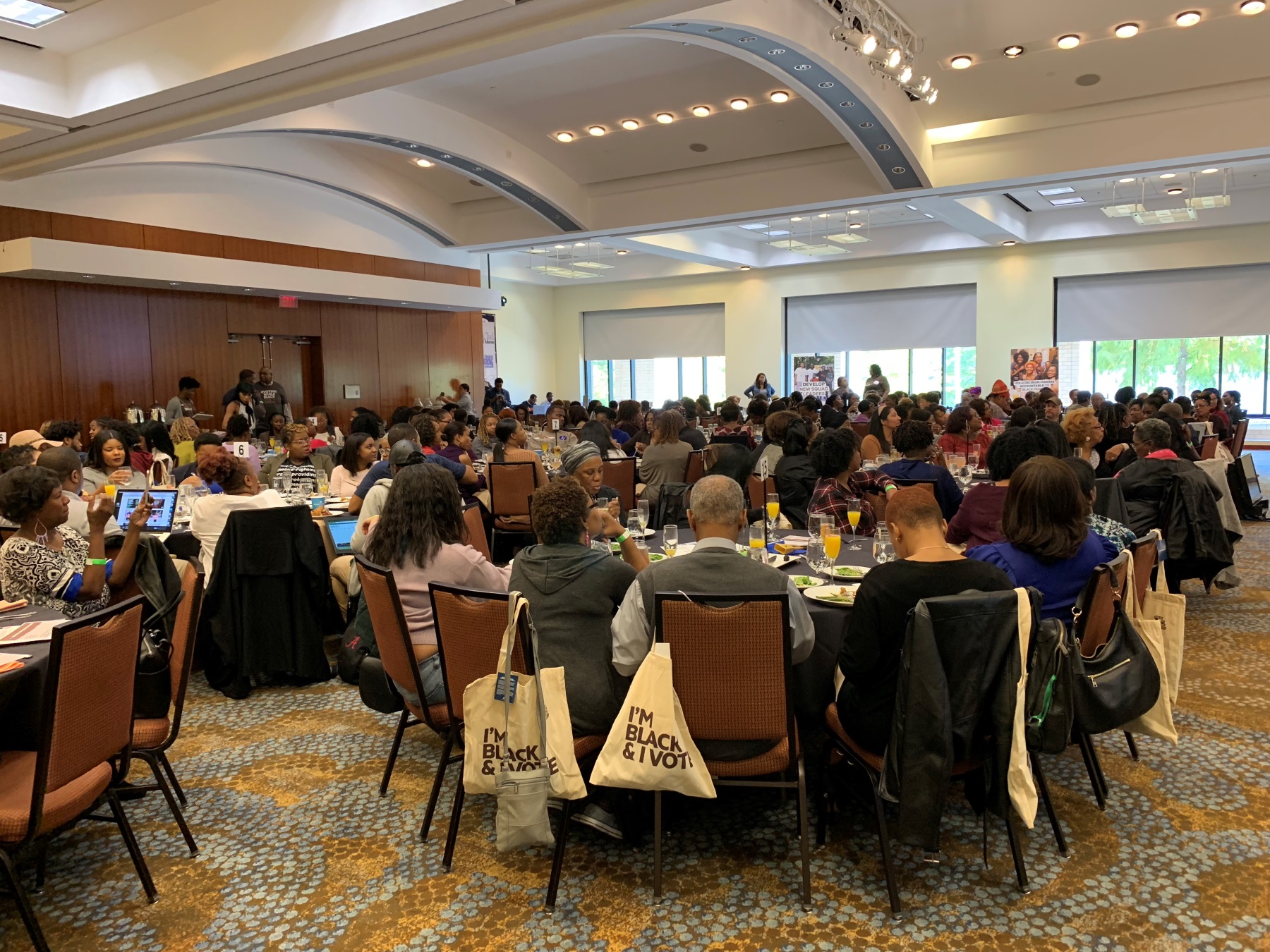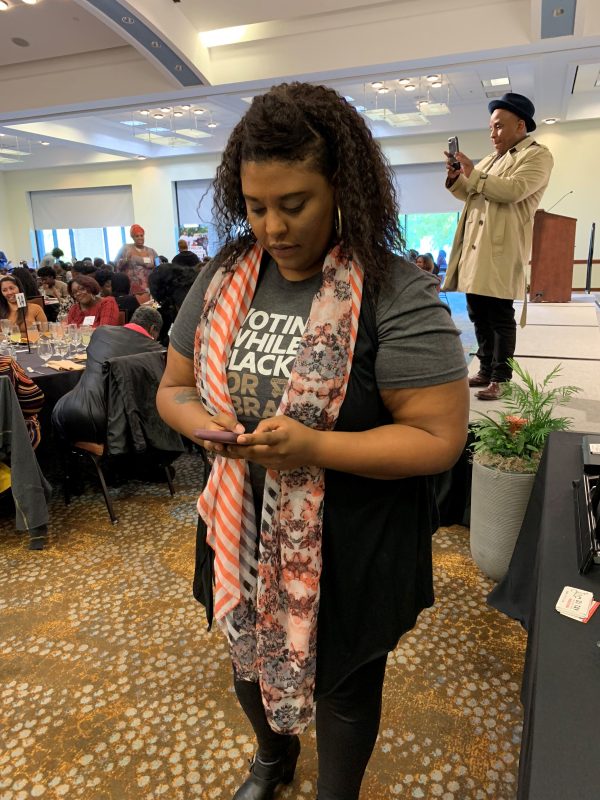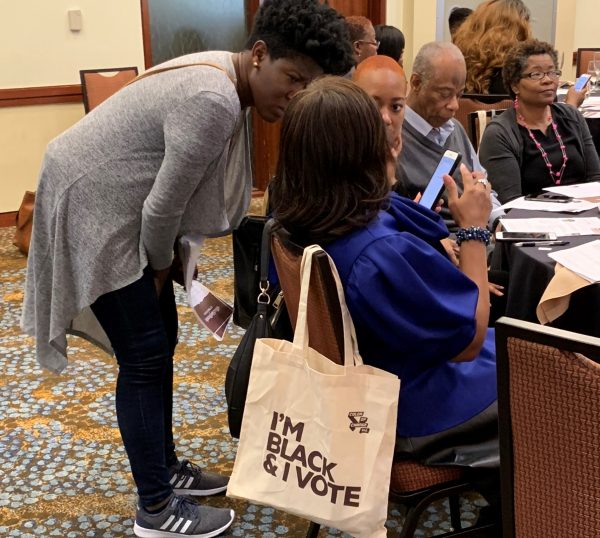‘Hi! My Name Is …’: Political Groups Target Georgia Voters Via Text

More than 400 people gathered at a Color of Change Political Action Committee text-a-thon at the Loudermilk Conference Center in downtown Atlanta to encourage black voters via text to vote.
Kathleen Quillian / WABE
At a Sunday brunch in downtown Atlanta, over roasted potatoes and mimosas, about 400 people look down at their phones to send text messages.
It’s a Color of Change Political Action Committee (PAC) text-a-thon at the Loudermilk Conference Center.
Volunteer Ali Roc describes a typical text.

“It just says, ‘Hey, my name is Ali, and I just want to invite you to vote in this upcoming election for governor between Stacey Abrams and Brian Kemp,” Roc said. “And then if they reply, we let them know that voters have been purged so we just want to make sure that we get like a really fair election.”
Chances are, if you vote and own a cellphone, you’ve gotten a few of these personalized texts.
Public Voter Files
There’s a lot of data available on voters through public voter files online, and it’s now easier for political groups to get it, on both sides of the aisle.
Rashad Robinson, a spokesperson with the Color of Change PAC, said his group is using this data to target black voters with text messages.
“The sophisticated sort of data operation that we’ve built on the back end, we have always recognized the power of technology,” Robinson said.
So far, his group has texted 190,000 likely black voters in Georgia.
Peer-To-Peer Texting
The Color of Change PAC uses software called Relay, a program created by supporters of 2016 presidential candidate Bernie Sanders to send text messages between voters.
Sanders’ campaign claimed to be the first to use peer-to-peer texting on a large scale.

Robinson said he also personally solicits people for their phone numbers, and the PAC raises money to buy cellphone numbers of black people from private companies that sell them and then matches it with voter data.
“We have literally 5 million e-mail addresses of black folks and allies around the country,” Robinson said.
It’s now common for campaigns to have dedicated data specialists, to keep these contact lists up to date, for example.
Personal Contact
William Boone, a professor of political science at Clark Atlanta University, said when he knocked on doors for campaigns in the 1960s, he wore a necktie to make a good impression.
“Just kind of old-fashioned pounding the pavement, trying to meet them on a one-to-one basis,” Boone said.
These days, appearances aren’t as important because the meetings don’t have to be face-to-face.
Political action committees are spending more money and time not only on texting, but also on social media.
Boone said it can be more effective particularly with younger voters, thanks to more and better data available on voters.
“You can predict, with a great deal more precision, who has voted, who has not voted,” Boone said. “You don’t have to do the shotgun or scattered type of thing that we once had to do.”
Though technology makes it easier to reach voters, it’s still hard to tell if a social media “like” or a text message will translate to a trip to the polls.
Kathleen Quillian contributed to this report.








